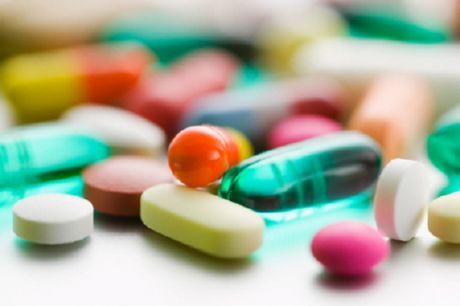
All iLive content is medically reviewed or fact checked to ensure as much factual accuracy as possible.
We have strict sourcing guidelines and only link to reputable media sites, academic research institutions and, whenever possible, medically peer reviewed studies. Note that the numbers in parentheses ([1], [2], etc.) are clickable links to these studies.
If you feel that any of our content is inaccurate, out-of-date, or otherwise questionable, please select it and press Ctrl + Enter.
Vitamin B9
Medical expert of the article
Last reviewed: 04.07.2025
Vitamins are incredibly useful components for our body. Each of them performs its specific role. What role does vitamin B9 perform in our body? We will try to answer this question now.

General information about vitamin B9
For people who are not related to medicine, it is enough to know that vitamin B9 is otherwise called folic acid. Those initiated into the secrets of such sciences as chemistry or biology know that folate and folacin are terms denoting vitamin B9. Vitamin B9 was first extracted from spinach leaves, so its scientific name is translated from Latin as "leaf". Folate is found mainly in plants, and can also be synthesized in the intestines by its microflora.
Daily requirement of vitamin B9
For normal body function, you need no more than 1000 mcg of folate per day.
Conditions under which you should increase your daily dose of vitamin B9
For pregnant women, the need for this vitamin increases significantly, about the same as for women who are breastfeeding. For people who lead an active lifestyle, with intense physical activity, it is necessary to increase the daily norm of vitamin B9.
The beneficial effects of vitamin B9 on the body
Vitamin B9 is needed for the full formation of blood cells and for the normal functioning of the digestive system. Folacin takes an active part in the process of cell division. It also synthesizes nucleic and amino acids, serotonin and norepinephrine - the main mediators of the nervous system. Without this vitamin, there will be no formation of blood cells, hair and blood. Folate has a beneficial effect on the metabolism of fats in liver cells, promotes the dissolution of cholesterol. It interacts well with choline and other B vitamins. Appetite and healthy skin are provided precisely thanks to this vitamin.
Interaction with other substances
When folate interacts with vitamins B12 and B, the risk of developing atherosclerosis decreases, the formation of the amino acid metabolism product homocysteine, which clogs the vessels with atherosclerotic plaques, stops. Vitamin B9 helps remove magnesium from the body. The human body grows and develops thanks to the interaction of two vitamins - B9 and B12, with their help, the constant formation of blood cells occurs.
Signs of Vitamin B9 Deficiency
Anemia or low blood count is caused by a lack of folate in the body. Swollen tongue, nervous system diseases and bleeding gums are all symptoms of a lack of vitamin B9, and if you value your health, you need to see a doctor immediately! He will prescribe you the necessary dose of vitamins and write a prescription. Folate deficiency can cause intestinal bleeding and diseases such as gastritis, stomatitis or enteritis. The consequences of a lack of this vitamin can greatly affect your health, so it is better to provide yourself with the necessary amount of products containing vitamin B9.
What influences the amount of vitamin B9 in foods?
Heat treatment of food greatly reduces the amount of vitamin B9. So, if you boil vegetables, up to 90% of the vitamin is lost, when heat treating meat, the loss of vitamin reaches 95%. When canning, the picture does not look better. You should eat as many foods as possible that contain folate in fresh form. These can be: broccoli, onions, lettuce, spinach or wild garlic.
Why does vitamin B9 deficiency occur?
The amount of folate in the human body can decrease not only with low food intake, but also with a decrease in the amount of vitamins B6, C and B12. The latter affects the production of folate in liver cells. If you eat little protein, the level of vitamin B9 can drop sharply.
Excessive alcohol consumption, contraceptives and antibiotics can affect the amount of folate. Its absorption can be disrupted by digestive system diseases, and its metabolism - by liver diseases.
If you want to be healthy and beautiful, be sure to maintain your vitamin levels through a healthy lifestyle and the right choice of foods for your daily diet.
What foods contain vitamin B9?
Nuts can contain a large amount of vitamin B9: walnuts - 70 mcg, peanuts - 240 mcg, hazelnuts - 68 mcg, almonds - 40 mcg. Among greens, wild garlic contains a large amount of folate (up to 40 mcg). Spinach can contain up to 80 mcg of folate, and leeks up to 32 mcg. Green salad lovers can get up to 48 mcg of this vitamin.
Chicken, pork, and beef liver can contain between 220 and 240 mcg of folate. Different types of beans contain different amounts of vitamin B9, but the average figure is around 90 mcg. Broccoli contains 63 mcg of folate, so include it in your diet.
If you like to go mushroom picking, you should know that your efforts will be rewarded, because mushrooms are very rich in vitamin B9: for example, a porcini mushroom can contain up to 40 mcg of folate, and a champignon - up to 30 mcg! Such an ingredient of any canning, like horseradish, contains almost 37 mcg of folate. Porridges are also very rich in this vitamin, so barley porridge contains 40 mcg of vitamin B9. Cook these products more often, and you will not have problems with a lack of vitamin B9.

